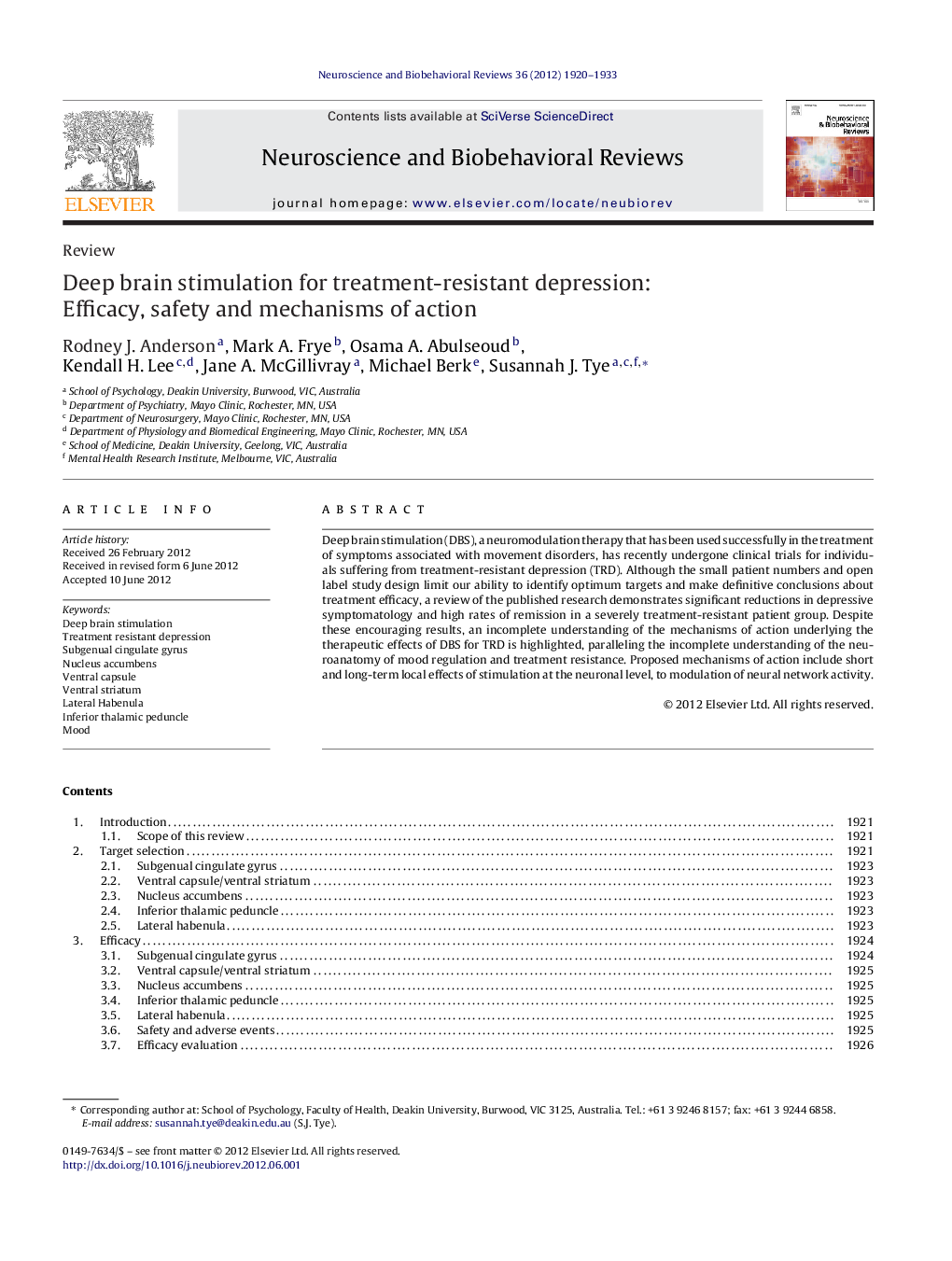| Article ID | Journal | Published Year | Pages | File Type |
|---|---|---|---|---|
| 937512 | Neuroscience & Biobehavioral Reviews | 2012 | 14 Pages |
Deep brain stimulation (DBS), a neuromodulation therapy that has been used successfully in the treatment of symptoms associated with movement disorders, has recently undergone clinical trials for individuals suffering from treatment-resistant depression (TRD). Although the small patient numbers and open label study design limit our ability to identify optimum targets and make definitive conclusions about treatment efficacy, a review of the published research demonstrates significant reductions in depressive symptomatology and high rates of remission in a severely treatment-resistant patient group. Despite these encouraging results, an incomplete understanding of the mechanisms of action underlying the therapeutic effects of DBS for TRD is highlighted, paralleling the incomplete understanding of the neuroanatomy of mood regulation and treatment resistance. Proposed mechanisms of action include short and long-term local effects of stimulation at the neuronal level, to modulation of neural network activity.
► Deep brain stimulation is a neuromodulation therapy for refractory depression. ► Clinical trials and case studies provide support for the efficacy of this treatment. ► Acute and network-wide mechanisms mediate therapeutic efficacy. ► Impact of deep brain stimulation on biomarkers needs further investigation. ► Elucidation of mechanisms will enhance treatments for refractory depression.
